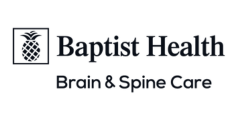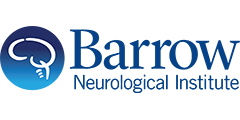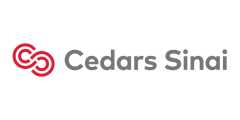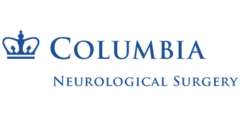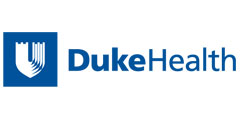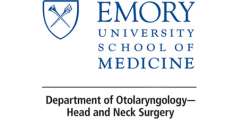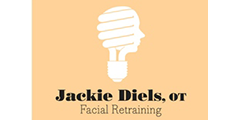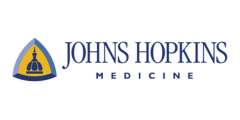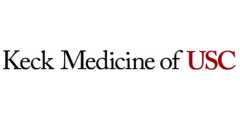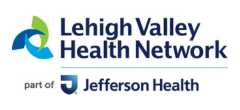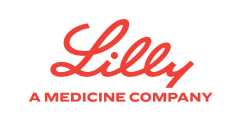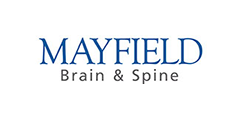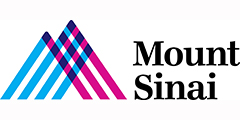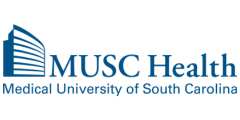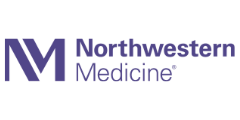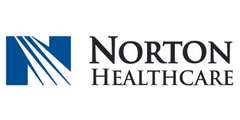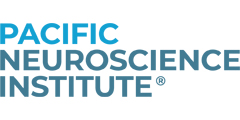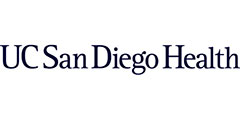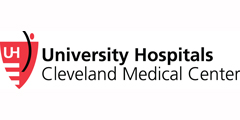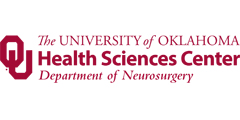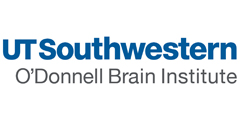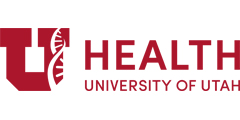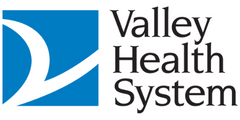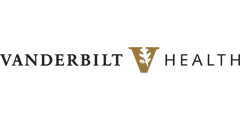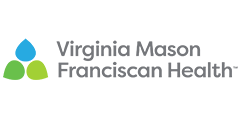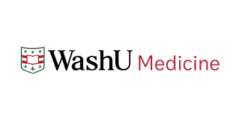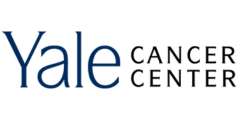- Details
What is the purpose of this study? The study is designed to investigate treatment outcomes in patients with large acoustic neuromas. Large acoustic neuromas tend to compress the brainstem and the facial nerve and in most cases the tumor is tightly adherent to these structures. In such circumstances it is not possible to remove the entire tumor during surgery as it may cause facial paralysis or brainstem complications. It has become a standard of practice for surgeons to remove all (called total resection), about 99% by volume (called near-total resection), or between 80-99% by volume (called subtotal resection) of these tumors depending on tumor characteristics encountered in the operating room. After surgery patients are monitored using MRI scans to make sure the residual tumor does not grow. If the residual tumor shows signs of growth patients receive stereotactic radiation therapy such as Cyberknife or Gammaknife. The potential advantage of leaving small residual tumor would be less chance of facial paralysis and other complications. However, this may come at the expense of residual tumor growth in future. It is our goal to investigate if one can optimize removal of the tumor and preserve excellent facial nerve function without increasing possibility of tumor growth and need for further treatment in future.
Who qualifies to participate? Patients with large acoustic neuromas (measuring 2.5 cm in the widest diameter in cerebellopontine angle) who have never received prior treatment.
What Centers are participating in the study?
- Stanford University, Palo Alto California (Robert Jackler, MD; Nikolas Blevins, MD; John Oghalai, MD)
- George Washington University, Washington DC (Ashkan Monfared, MD)
- Weill Cornell University, New York (Samuel Selesnick, MD)
- University of Iowa, Iowa city (Bruce Gantz, MD; Marlan Hansen, MD)
- University of Texas Southwestern, Dallas (Walter Kutz, MD; Brandon Isaacson, MD)
- Louisiana State University, Baton Rouge and New Orleans (Moises Arriaga, MD)
- Indiana University, Indianapolis (Rick Nelson, MD)
- University of Cincinnati in Ohio and Baylor College of Medicine in Houston are no longer accepting new patients.
Does participating in the study affect what type of treatment options I may have? No, this study is purely a data-collection study and does not, in any way, affect your treatment.
Would the study cover the cost of treatment? No, participants are responsible for the cost of their own treatment which is usually covered by their insurance provider.
Are there any additional costs or financial benefits to participate in the study? No, there will be no additional cost to you or your insurance companies nor any financial rewards because of participating in the study.
Are there any additional risks associated with participating in the study? Participating in the study simply allows the investigators at each institution to follow your progress over the years. There are obviously risks associated with treatment of large acoustic neuromas irrespective of participation in the current study. The data collected at each institution is forwarded to the coordinating Center in an anonymous fashion without containing any names or other personal information. Each participating institution will provide you with a consent form which delineates the details of the study.
What are my obligations if I agree to participate? There are no additional obligations to participate in the study besides what is required for treatment and follow-up of these tumors. You may be asked to fill out a short questionnaire during your visits. There is no cost to you, and you can withdraw or decline to participate at any time. Your decision to participate does not in any way affect your relationship with the Acoustic Neuroma Association®(ANA), and no funding from the ANA is being used to complete this study. Your personal information is never shared.
What if I have other questions? More detail about the study is listed on US National Institute of Health Clinical Trial website. You may also email Dr. Monfared at amonfared@mfa.gwu.edu.
How do I participate? If you are able to receive your treatment at any of the participating Centers, please contact Dr. Monfared to put you in touch with that Center’s coordinator.
Thank you for helping future generations of acoustic neuroma patients by participating in our study,
Ashkan Monfared, MD
Associate Professor of Surgery and Neurosurgery
George Washington University Medical Faculty Associates
Logos for the participating centers:









- Details

- We are asking you to take part in a study conducted by researchers at the University of California, Irvine. It is our goal to better understand the decision-making process for patients with an acoustic neuroma. We intend to use this data to assess challenges and important factors used to decide on which treatment course to undertake. Identification of these issues can better inform physicians on treatment care.
- You are eligible to participate in this study if you have had a diagnosis of acoustic neuroma.
- Participating in this study is optional. If you choose to participate, please complete this survey, which will take approximately 15 minutes.
- This survey is completely anonymous; no identifying factors will be recorded. No information that you provide will be able to be traced back to you.
- There are no direct benefits from participation in the study, but you will be providing physicians with valuable insight into the decision-making process for those diagnosed with an acoustic neuroma.
- The principal investigators are Dr. Harrison W. Lin and Dr. Hamid R. Djalilian, of the University of California, Irvine. Please email the research team at UCIAcousticNeuroma@gmail.com if you have any questions or concerns.
- To participate in the survey, click on the following link:
https://ci-redcap.hs.uci.edu/surveys/?s=C8F749XXXD
- Details

Speech and Communication in Patients with Facial Paralysis
The goal of this research study is to describe the impact of facial paralysis on oral communication. Surprisingly, there has been little research to date that has measured the effect of facial paralysis or facial weakness on how people verbally communicate. This ten-minute, anonymous online survey will help doctors and researchers understand more about the connection between facial paralysis and communication. This study is led by Dr. Jon-Paul Pepper, a facial nerve surgeon at the University of Southern California.
For more information and to complete the online survey, please click or copy the following link into your web browser:
- Details
Acoustic Neuroma Association
Website Terms of Use
The Acoustic Neuroma Association (“ANA”) owns, operates and/or controls a network of websites and web pages, including www.ANAUSA.org and its associated and/or successor internet addresses (collectively, the “Site”). Should ANA elect to participate in Social Media Channels such as Facebook, Twitter or YouTube, such pages, profiles, accounts and such other features or functionality in which ANA may participate with respect to use of existing and future digital and other interactive media opportunities are included within the definition of “Site.” The Site is provided to visitors and users (collectively and individually, “you” or “your”) only if you agree to these Terms of Use unconditionally and without modification. Additional terms and conditions, which are incorporated into these Terms of Use, may apply to purchases made through the Site and to specific portions or features of the Site (such as the Discussion Forum). These Terms of Use and any additional terms are a binding, legal contract. PLEASE TAKE THE TIME TO READ ALL TERMS AND CONDITIONS CAREFULLY BEFORE USING ANY FEATURES OF THE SITE. By accessing, registering on or otherwise using the Site, you unconditionally agree to be bound by these Terms of Use and all applicable laws whether or not you have read them.
1. Who we Are
The Acoustic Neuroma Association, the premier resource to the acoustic neuroma community, informs, educates and supports those affected by acoustic neuroma brain tumors. The Site, ANA’s newsletters, patient information booklets and other events all assist ANA in furthering its mission. Members and visitors (“you” or “your”) may browse the Site to learn more about ANA, the information it provides, its caregiver, health care provider, educational material, publications and events and to interact with other Site users (although some of these activities may require that you register). You may become an ANA member, make a donation and purchase informational material and related items through the Site. A third party vendor securely manages and processes all financial transactions made through the Site.
2. Information We Provide
The Site and all material posted on the Site or otherwise approved by ANA (collectively, “Licensed Content”) may be used for the sole and limited purposes set forth in the Site and these Terms of Use. You may view and print portions of the Licensed Content for your own personal use but not for resale or other commercial exploitation and not for use other than as provided in these Terms of Use. Any other use of Licensed Content without ANA’s prior written approval is strictly prohibited. ANA gathers information through multiple sources. This means that Licensed Content is not only provided by ANA but also gathered through its members and visitors, links to organizations and publications and the research and medical community. While ANA uses commercially reasonable efforts to provide accurate information, some information may be cutting edge, up-to-the-minute research data that has not yet been corroborated. Moreover, ANA does not review the content of all material posted to or accessible through links from the Site. As a result, all items of Licensed Content contained on the Site may not be current, accurate or complete. Furthermore, because many factors go into the decision-making process with respect to diagnosis and treatment, and everyone’s particular circumstances and needs may differ, the Licensed Content is provided for informational purposes only. ANA cannot ensure or guarantee and does not warrant that the Licensed Content will be accurate, meet your particular needs or requirements or that the recommendations or other information provided by ANA experts or other Site users is complete, accurate, or current.
3. Privacy and Data Security
ANA values its relationship with Site visitors and members and uses commercially available technology to safeguard any personal information collected through the Site. Nevertheless, the internet is an open medium and no data transmission through the internet is completely secure. You transmit personal information at your own risk. ANA does not guaranty or warranty the security of information you transmit. ANA takes various precautions to safeguard your personal information against loss, theft and misuse as well as unauthorized access, disclosure, alteration and destruction. For example, you must register on the Site to become an ANA member or join the discussion forum. Once received, your personal information is stored in the United States in ANA’s database off the internet and is accessible only by ANA personnel and service providers who are contractually required to maintain the confidentiality of information. ANA does not collect financial information.
Information Collected: In general, you may visit the Site without telling ANA who you are or revealing personal information about yourself. ANA, its business partners and other companies providing services to or on behalf of ANA (such as, for example, companies assisting with the hosting, operation or features of the Site, fundraising, advertising and promotions, credit card or other internet payment functionality such as PayPal and the like) may use various technologies (such as cookies, web beacons, pixel tags, click-through URL links) to collect non-personally identifiable information discernable as a result of your visit. This may include, without limitation, your IP address, web pages requested or viewed, date, time and domain type, demographic information and responses to surveys, promotions and advertisements. Information gleaned from your browser is automatically received and recorded on server logs. As technology evolves, information may be gathered through other means as well. You may set your browser either to notify you when you receive a cookie or to refuse to accept cookies. However, if you do so you may not be able to participate in certain of the Site’s features.
Information that personally identifies you, such as your name, address, e-mail address, telephone number as well as demographic data specific to you may also be collected from a variety of sources. For example, you may provide personally identifiable information directly when seeking disease, caregiver and health care professional information. It also may be gleaned through the Site or collected from other sources. Moreover, as previously mentioned, you must register on the Site to become an ANA member or join the discussion forum. Once received, your personal information is stored in the United States in ANA’s database off the internet and is accessible only by ANA personnel and service providers who are contractually required to maintain the confidentiality of information. ANA does not collect financial information. Credit card information collected in connection with a transaction are completed through a third party vendor with Secure Sockets Layer (SSL) security.
When you register to be an ANA member, join a discussion forum, attend an event, or request support group information, you may be asked to create one or more personal profiles – providing your name, telephone number, email address and/or your mailing address or sensitive information such as patient type– and choose a password for security. This information will be saved by the Site to enable it to recognize you each time you log in to varying portions of the Site. You cannot communicate with ANA through the “Contact Us,” Support Groups or Caregivers links, telephone numbers on the Site or via e-mail without providing personally identifiable information. It is your responsibility to preserve the confidentiality of and not share your user ID and password. You are responsible for the actions of each individual to whom you have given access through your user ID and password and/or for those who obtain access as a result of your failure to properly secure your user ID and password. If you contact ANA or its service providers, a record of that session or correspondence will be maintained. Personally identifiable information is collected and stored when you become an ANA member of the Site, participate in discussion forums and other interactive areas, request literature and/or information on items sold through the Site. If you participate in a discussion forum or other interactive public areas of any of the Site, any information you share is visible to other users. Personally identifiable information you submit to one of these forums can be read, collected or used by other individuals to send you unsolicited messages. ANA is not responsible for personally identifiable information you choose to submit in these forums. If you do choose to make otherwise non-public information available by enabling certain user features, ANA may collect that information from your interaction and it may be treated as publicly available data.
Information Use/Sharing: ANA will not trade, sell or share your personal information with third parties without your consent unless required by law or other than as disclosed to you in these Terms of Use or when the information is collected. Except as limited by these Terms of Use, ANA may use any information gained through the Site for any legal purpose. If you access the Site outside the United States, your connection is through and to servers located in the United States. Any personal information you provide will be processed and maintained in the United States on ANA’s servers and/or other network systems operated by or for ANA’s benefit. If you access the Site and/or reside outside of the United States, your information may be stored, transmitted and shared in accordance with U.S. data privacy laws which may not be equivalent to those in effect in your country. ANA uses personal information you provide in a number of ways. When you register, you create a member profile that enables you to choose to interact with ANA in a variety of ways, including receiving emails and text messages. You may, at any time, limit your interactions, for example, by updating your member profile to stop receiving literature or other communications from ANA. Please note that you may continue to receive messages for a short time until ANA’s records are updated. Personal information is required to become an ANA member, fulfill your requests for items, literature or other information, to respond to your inquiries, correct problems with the Site, to notify you of new treatment or other medical information, to enlist your participation in advocacy, educational programs, email campaigns, surveys, or promotions. It may be required or helpful to customize Licensed Content, improve customer support services, conduct research, advertising, marketing and promotional campaigns, or to provide anonymous reporting for internal use and to third parties. Information collected from any source may be combined. Your information may be used for administrative and other purposes deemed necessary to maintain, service and improve the Site, ANA products and services. It may also be aggregated and made available without identifying you to ascertain trends, security/privacy patterns and research, internal record keeping and reporting, measuring and reporting learning, performance and other statistical information concerning any aspect of the Site.
If ANA were to merge with or join an alliance of similarly situated organizations or if it were to cease operations, your information may be merged with that of the alliance or transferred to the surviving company and will then be subject to that organization’s privacy policy which may be different from that of ANA. ANA may disclose or access your personal or account information if it reasonably believes in good faith that disclosure is required by law, necessary to identify or contact you or bring legal action to enforce any legal rights, including against you or a third party, for nonpayment, violation of any agreement, and to prevent injury to or interference with ANA’s rights or property, the rights or property of users of other Site or anyone else that could be harmed by such activities. By accessing and using the Site, you agree that information you have provided may be used and disclosed as described above or as these Terms of Use may be modified from time to time.
To Update your Information/Unsubscribe: you have choices as to how ANA will communicate with you. The Site allows you to update your information and your preferences. For example, you may choose to receive, or stop receiving newsletters or other communications from ANA. Please click here info@ANAUSA.org to learn how to complete your request.
4. User Conduct
In general, ANA expects visitors to interact with ANA and other users of the Site in a courteous manner and in compliance with all laws. If you choose to “follow” or connect to ANA through Social Media Channels, you agree to comply with their rules, guidelines, best practices, terms of service as they may establish from time to time in addition to these Terms of Use and any addition rules, terms of use, conduct codes that ANA may establish in connection with your use of ANA’s Social Media Channels. Vandalism, obscene or abusive language, harassment, threats, or abuse of any nature or form on the Site, including via e-mail, post or other transmission is strictly prohibited. Impersonation of others or misrepresenting your affiliation with ANA or another is prohibited. You may not upload to, distribute or otherwise publish through the Site any material that you know contains viruses or malicious code, is false, misleading, defamatory, vulgar, obscene, threatening, libelous, hateful, racially or ethnically objectionable or which may constitute or encourage a criminal offense, violate any law or another’s rights or otherwise give rise to liability.
You agree not to forge headers or otherwise manipulate identifiers in order to disguise the origin of anything transmitted through the Site, disclose proprietary or confidential information or otherwise infringe another’s patent, trademark, trade secret, copyright or other proprietary right or invade another’s rights of privacy or publicity (collectively, “Rights”). You may not upload chain letters, pyramid schemes, solicitations, or commercial material of any sort to the Site, use the Site to solicit others, advertise or promote anything. Framing, in-line linking or other means of associating the Site or Licensed Content with another or with any material, link or information not originating with ANA is expressly prohibited.
You may not probe, scan or test the vulnerability of the Site or any networks. You many not use any “deep-link,” “page-scrape,” “robot,” “spider” or other automatic device, program, algorithm or methodology, or any similar or equivalent manual process to access, acquire, copy or monitor any portion of the Site or Licensed Content. You may not reproduce or circumvent the navigational structure or presentation of the Site or any Licensed Content, or attempt to access any materials or information through any means not purposely made available by ANA through the Site. Any attempt to interfere with or disrupt the Site, its servers, networks, Software, equipment or database connected to the Site, whether via malicious code, files or other means, to disassemble, reverse engineer or decompile any Software, trace the information of any other user or visitor, circumvent security features such as passwords, or take any action that compromises the privacy or security of the Site, users or other visitors is strictly prohibited.
5. Social Media Channels/Forums/User Submissions
Certain more interactive portions of the Site, discussion forums, Social Media Channels and other digital media forums require special mention. ANA insists that all statements made about it and its activities be accurate, not misleading and not contain unsubstantiated statements. Any comments, blogs, discussions, data, images, sounds, text, product ideas, suggestions or enhancements, as well as anything embedded therein, material, information or other communication you transmit, upload or post to the Site, generally and through Social Media Channels and other the public forums, or email to ANA (collectively, “Communications”) are non-confidential, nonproprietary and become the property of ANA. ANA has no obligation to preserve the confidentiality of or refrain from disclosing any Communications. You recognize and acknowledge that your submission of any suggestions, ideas, images, data or other material is done on a non-confidential, non-proprietary basis, without expectation of compensation or attribution of any sort. ANA has no liability for and will be free to copy, disclose, distribute, incorporate and otherwise use all or any part of any Communications for any and all commercial or noncommercial purposes in any medium whatsoever without additional consent or approval from you. Please exercise caution and discretion in disclosing personal information through, including uploading photos to, any public forums.
You are solely responsible for your Communications and your activities on the Site. Although ANA will not, and has no obligation to, monitor your Communications, it has the right not to post or publish Licensed Content and/or your Communications and to delete, remove or edit any Licensed Content and or Communications at any time in its sole discretion without notice or liability of any notice or sort. Under no circumstances is or will ANA or its affiliates be liable in any way for any Communications, your or another’s use of the Site or any Licensed Content, including but not limited to any errors or omissions in any Licensed Content, or for loss or damage of any kind incurred as a result of the use of any Licensed Content via the Site. Statements about materials sold through the Site or other statements or claims made through public, interactive areas provided on the Site have not undergone review or research by ANA to substantiate such claims. ANA cautions you not to rely on such claims and advises that you perform your own independent research.
6. Indemnity
You agree to indemnify, defend, release and hold ANA, its officers, directors, members, suppliers, service providers, agents and employees, and those of its affiliates, harmless from all claims, demand, damages, fees and costs of any nature, including costs of investigation and reasonable fees of attorneys and other professionals, due to or arising out the posting or use of anything you submit, transmit through or upload to the Site, your Communications, your use of the Site, your connection to the Site, your violation of these Terms of Use, or your violation of any Rights. In the event you provide registration or other information that is untrue, inaccurate, fraudulent, or out of date, you agree to indemnify ANA for and hold it harmless from and against any and all liability, damages, loss or expense (including reasonable fees of attorneys and other professionals) it may incur including but not limited to loss of business profits, taxes, penalties or sanctions, interest, fees, costs and expenses of any nature arising from or related to any claim, demand, action or proceeding alleged or initiated against ANA by any third party based upon the information you provide or your use of the Site.
7. Modifications to the Site and these Terms of Use
From time to time ANA may change the Licensed Content, the products and services offered, disable certain features of the Site or expand the Site’s capability. ANA also reserves the right at any time and from time to time to modify these Terms of Use, the Site, its functionality and capabilities and/or discontinue, temporarily or permanently, the Site (or any part thereof) with or without notice. ANA will post notice of any modifications on its home page and on the home page of the secure portions of the Site when You log in. You will be bound by the modifications if You use the Site after being given notice. You should also regularly review these Terms of Use. You agree that ANA shall not be liable to You or to any third party in any way.
8. Links
The Site contains links to other internet websites or resources. When you click a hyperlink to other internet websites or resources accessible through the Site, you leave the Site. ANA has no control over such sites, their content and resources or the business practices or policies of operators of such sites. The privacy terms set forth in these Terms of Use do not apply to the practices of any companies or individuals operating the linked sites. Please use caution and review the privacy policies of any sites that you visit to learn more about their information-gathering practices. ANA expressly disclaims all responsibility or liability for the availability or accuracy of such external sites or resources or the content thereon, does not endorse and is not responsible or liable for any advertising, products, advice, research, data or other materials on or available from such sites or resources. The inclusion of any link on the Site does not imply that ANA endorses the linked site. Your use of any links is at your own risk. You further acknowledge and agree that ANA shall not be responsible or liable, directly or indirectly, for any harm, damage or loss caused or alleged to be caused by or in connection with your use of or reliance on any goods, services, advice or materials available on or through any such link, site or resource.
9. ANA’s Proprietary Rights
Everything you see or read on the Site, including the expression, coordination, selection, arrangement, collection, compilation, assembly and arrangement of the Site and Licensed Content, is protected by all United States and international copyright and trademark laws, and may not be used except as provided in these Terms of Use without ANA’s express written permission. The Site and any necessary software or other technology used in connection with the Site (“Software”), the collection, compilation, assembly and arrangement of Licensed Content, all images, photography, graphics, artwork, text, and other information and material found on the Site, regardless of source, all Marks and other intellectual property relating thereto and all information and data collected through the Site (all of which are included in and as the “Licensed Content”), is owned by ANA, its suppliers or partners and contains proprietary and confidential information that is protected by all applicable intellectual property and other laws. All trademarks, logos, trade names, trade dress, product and service marks, individually or combined with one another (collectively the “Marks”) and whether or not registered, are owned by and are proprietary to ANA or other third parties who have granted ANA the right and license to use its marks (“Third Party Marks”). You may not use or display the Marks or Third Party Marks in any manner without the prior written consent of the applicable owner. This includes use of the Site addresses or Marks in page text, as key words, meta tags or any other “hidden text.” Other product or service names, logos, graphics, page headers, button icons and scripts are trademarks or trade dress of ANA and may not be used in connection with any other product or service in any manner, but especially not in a manner that is likely to cause confusion in the marketplace or in any matter that disparages or discredits the owner or ANA. ANA may use any such material in any manner for any reason without Your consent, fee or obligation to account to You in any way, and, unless You and ANA agree otherwise in writing, ANA is and shall be the sole and exclusive owner.
10. Notices and Procedures for Making Claims of Copyright Infringement
Pursuant to Title 17, United States Code, Section 512(c)(2), notifications of claimed copyright infringement should be sent to ANA.
ANA respects the intellectual property of others, and asks its users and visitors to do the same. ANA will investigate notices of alleged infringement and will take appropriate actions under the Digital Millennium Copyright Act (“DMCA”) and other applicable intellectual property laws. Upon receipt of notices complying with the DMCA, ANA will act to remove or disable access to any material found to be infringing or found to be the subject of infringing activity and will act to remove or disable access to any reference or link to material or activity that is found to be infringing.
If you believe that your work has been copied in any way that constitutes copyright infringement, please provide all of the following information:
A. a physical or electronic signature of the person authorized to act on behalf of the owner of an exclusive copyright that is allegedly infringed;
B. a description of the copyrighted work that you claim has been infringed;
C. a description of the material that you claim is infringing or is the subject of infringing activity, that it is to be removed or access to it disabled and information reasonably sufficient to enable ANA to locate the material on the Site;
D. your name, address, telephone number, email address and all other information reasonably sufficient to permit ANA to contact you;
E. a statement by you that you have a good faith belief that use of the material described by you is not authorized by the copyright owner, its agent, or the law;
F. a statement by you, made under penalty of perjury, that the information in your notification is accurate and that you are the copyright owner or authorized to act on behalf of the owner of an exclusive right that is allegedly infringed.
Notices of claimed copyright infringement should be directed to:
By mail: Acoustic Neuroma Association
2555 Northwinds Parkway
Alpharetta, GA 30009
Attn: Webmaster
By Email: info@ANAUSA.org
(Please include “Notice of Infringement” in the subject line.)
IMPORTANT NOTE: THE PRECEDING INFORMATION IS PROVIDED EXCLUSIVELY FOR NOTIFYING ANA THAT YOUR COPYRIGHTED MATERIAL MAY HAVE BEEN INFRINGED. ALL OTHER INQUIRIES, QUESTIONS AND REQUESTS, OR QUESTIONS ON PRIVACY, WILL NOT RECEIVE A RESPONSE THROUGH THIS PROCESS.
11. DISCLAIMERS AND LIMITATIONS OF LIABILITY
ANA DOES NOT OFFER LEGAL OR MEDICAL ADVICE OR COUNSELING AND NOTHING CONTAINED IN THE LICENSED CONTENT OR ON THE SITE SHOULD BE CONSTRUED AS OFFERING SUCH ADVICE. ANA DISCLAIMS ALL REPRESENTATIONS OR WARRANTIES ABOUT THE ACCURACY OR COMPLETENESS OF THE SITE OR LICENSED CONTENT.
YOU EXPRESSLY UNDERSTAND AND AGREE THAT:
(A) YOUR USE OF THE SITE AND ANY PARTICULAR FEATURE IS AT YOUR SOLE RISK. THE SITE IS PROVIDED ON AN “AS IS” AND “AS AVAILABLE” BASIS. ANA EXPRESSLY DISCLAIMS ALL WARRANTIES OF ANY KIND, WHETHER EXPRESS OR IMPLIED, INCLUDING, BUT NOT LIMITED TO THE IMPLIED WARRANTIES OF MERCHANTABILITY, FITNESS FOR A PARTICULAR PURPOSE, WARRANTIES ARISING FROM COURSE OF DEALING OR COURSE OF PERFORMANCE, FREEDOM FROM MALICIOUS CODE, NON-INFRINGEMENT AND NONINTERFERENCE WITH YOUR USE OF ALL OR ANY PART OF THE SITE.
(B) ANA MAKES NO WARRANTY (I) THAT THE SITE WILL MEET YOUR REQUIREMENTS, (II) THAT ACCESS TO THE SITE WILL BE UNINTERRUPTED OR TIMELY, THAT IT IS SECURE, OR THAT LICENSED CONTENT IS ACCURATE OR ERROR-FREE, (III) THAT PRODUCTS WILL BE AVAILABLE, ACCURATELY DEPICTED OR PRICED, (IV) THAT THE RESULTS OBTAINED FROM USE OF THE SITE WILL BE ACCURATE OR RELIABLE, (V) THAT THE QUALITY OF ANY PRODUCTS, THE SITE, INFORMATION, OR OTHER MATERIAL PURCHASED OR OBTAINED BY YOU THROUGH THE SITE WILL MEET YOUR EXPECTATIONS, OR (VI) THAT PRODUCTS WILL BE PROPERLY DELIVERED IN PROPER AMOUNTS.
(C) ANY MATERIAL DOWNLOADED OR OTHERWISE OBTAINED THROUGH THE USE OF THE SITE IS DONE AT YOUR OWN DISCRETION AND RISK AND THAT YOU WILL BE SOLELY RESPONSIBLE FOR ANY RESULTING DAMAGE.
(D) NO ADVICE OR INFORMATION, WHETHER ORAL OR WRITTEN, OBTAINED BY YOU FROM ANA OR THROUGH OR FROM THE SITE SHALL CREATE ANY WARRANTY EXPRESS OR IMPLIED.
(E) ANA IS NOT LIABLE FOR ANY PRODUCT WARRANTIES NOT EXPRESSLY SET FORTH ON THE SITE OR PROVIDED WITH THE PRODUCT PACKAGING.
YOU EXPRESSLY UNDERSTAND AND AGREE THAT ANA SHALL NOT BE LIABLE FOR ANY DAMAGES WHETHER DIRECT, INDIRECT, INCIDENTAL, SPECIAL, CONSEQUENTIAL OR EXEMPLARY DAMAGES, INCLUDING BUT NOT LIMITED TO DAMAGES FOR LOSS OF PROFITS, GOODWILL, USE, DATA OR OTHER INTANGIBLE LOSSES (EVEN IF ANA HAS BEEN ADVISED OF THE POSSIBILITY OF SUCH DAMAGES), WHETHER ARISING OUT OF OR IN CONNECTION WITH THE USE OR THE INABILITY TO USE, ACCURACY OF THE INFORMATION, PRODUCTS AND MATERIALS SHOWN OR AVAILABLE FROM THE SITE OR ANY OTHER MATTER RELATING TO YOUR ACCESS TO OR USE OF THE SITE. IN ANY CASE, ANA’S SOLE LIABILITY, AND THAT OF ITS LICENSORS, SUPPLIERS AND BUSINESS PARTNERS, IS LIMITED TO FIVE DOLLARS ($5.00). YOUR LEGAL RIGHTS WITH RESPECT TO THESE DISCLAIMERS AND WAIVERS MAY VARY FROM JURISDICTION TO JURISDICTION. WITHOUT INTENDING TO LIMIT THE FOREGOING, YOU MUST BRING ANY CLAIMS YOU MAY HAVE AGAINST ANA WITHIN SIX (6) MONTHS OF THE DATE THE CLAIM AROSE OR BE FOREVER BARRED. THESE LIMITATIONS SHALL APPLY NOTWITHSTANDING ANY FAILURE OF ESSENTIAL PURPOSE OF ANY LIMITED REMEDY.
12. Notice
Notices to you may be made via either email or regular mail. ANA may also provide notices of changes to these Terms of Use or other matters by displaying notices or links to notices to you generally on the Site. Notice or other correspondence to ANA should be sent prepaid, by certified mail, return receipt requested or overnight commercial courier to:
Acoustic Neuroma Association
2555 Northwinds Parkway
Alpharetta, GA 30009
13. General Information
ANA administers and operates the Site from its location in Alpharetta, Georgia USA. Any questions or feedback concerning the Site should be directed to info@ANAUSA.org. Although the Site may be accessible worldwide, not all features, products or services discussed, referenced, provided or offered through or on the Site are available to all persons or in all geographic locations, or are appropriate or available for use in your jurisdiction. ANA reserves the right to limit the provision and quantity of any feature, product or service to any person or geographic area in its sole discretion. Any offer for any feature, product or service made on any of the Site is void where prohibited. These Terms of Use, ANA’s Standard Terms and Conditions of Sale and any other agreements, whether or not referenced herein, constitute the entire agreement between you and ANA with regard to and shall govern all purchases. Your activities and use of the Site supersede any prior agreements between you and ANA. You also may be subject to additional terms and conditions when you use third party services. These Terms of Use, your use of the Site and any other agreement with and the relationship between you and ANA shall be governed by the laws of the State of Georgia without regard to choice of law provisions, nor shall the 1980 United Nations Convention on Contracts for the International Sale of Goods apply. You and ANA agree to submit to the personal and exclusive jurisdiction of the pertinent state or federal courts located within or with jurisdiction over the City of Alpharetta, State of Georgia, regardless of the fact that the Site is accessible outside the United States. Notwithstanding the foregoing, ANA may seek equitable relief, including preliminary and permanent injunction, in any court of competent jurisdiction to prevent or enjoin misappropriation, misuse, unauthorized disclosure or infringement of any intellectual property rights. The failure of ANA to exercise or enforce any right or provision of the Terms of Use shall not constitute a waiver of such right or provision. If any provision of the Terms of Use is found by a court of competent jurisdiction to be invalid, the parties nevertheless agree that the court should endeavor to give effect to the parties’ intentions as reflected in the provision, and the other provisions of the Terms of Use remain in full force and effect. The section titles in the Terms of Use are for convenience only and have no legal or contractual effect.





